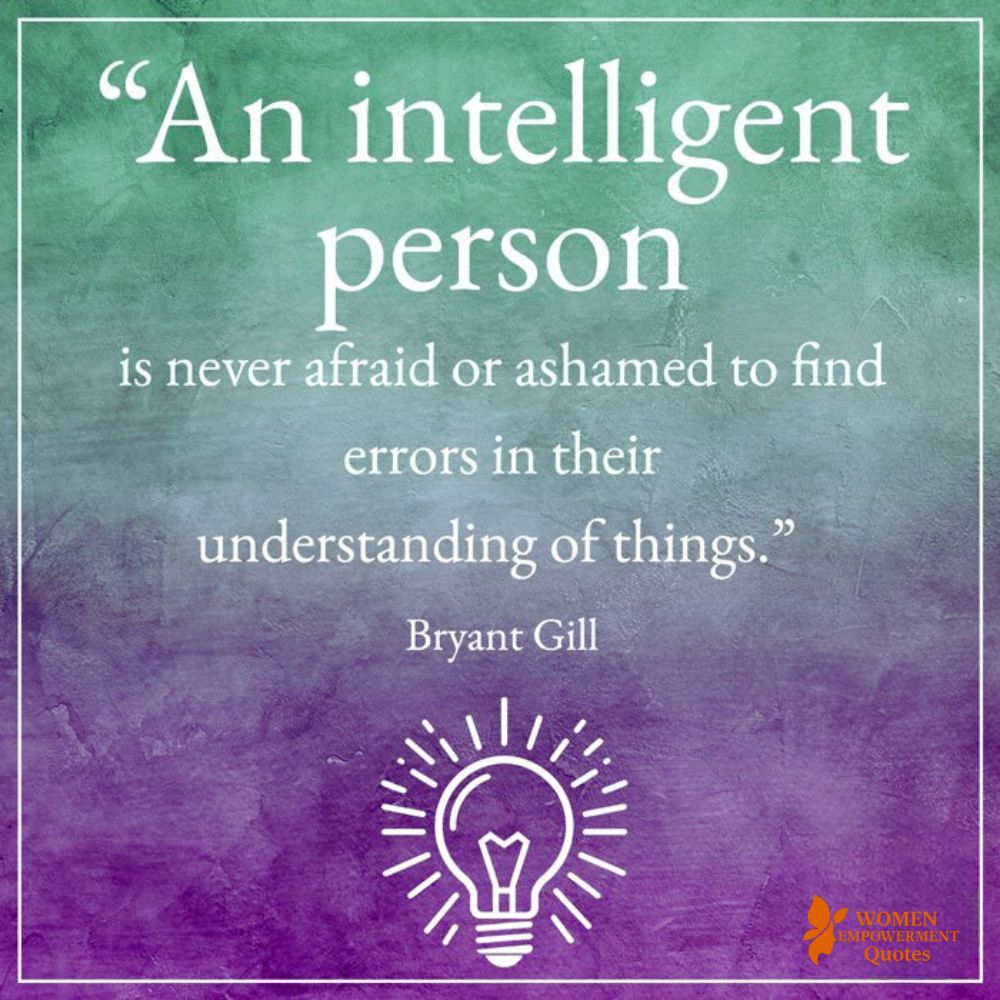
Embracing Growth Through Intellectual Humility
In a world that often rewards certainty, the truly wise stand out not for knowing everything, but for their willingness to admit when they don’t. As Bryant Gill insightfully puts it, “An intelligent person is never afraid or ashamed to find errors in their understanding of things.” At the heart of this idea is something powerful and deeply human: intellectual humility.
Knowledge is not a fixed destination—it’s a lifelong journey. Our beliefs are shaped by experience, learning, and perspective, but they are never complete. Even the most brilliant minds must acknowledge that they can be wrong. What sets them apart is not their perfection, but their courage to embrace mistakes as stepping stones toward truth.
Intellectual humility means having the strength to say, “I was wrong,” and the openness to ask, “What can I learn?” It’s not weakness—it’s strength in vulnerability. It reflects curiosity, growth, and a deep respect for learning that transcends ego.
When we allow ourselves to be challenged, when we listen without defensiveness, and when we choose growth over pride, we become more resilient, more compassionate, and far more capable of understanding the complex world we live in.
The Power of Openness in a Divided World
This humility doesn’t just impact us as individuals—it’s a quiet force for progress in society. When people are willing to say, “I might not have all the answers,” it opens doors to meaningful conversations, mutual respect, and collaboration across differences.
On a personal level, intellectual humility strengthens our relationships. It invites empathy and deepens understanding. Instead of arguing to win, we begin to listen to understand. We stop seeing disagreement as threat, and start seeing it as opportunity.
In communities and nations, it helps bridge divides. The world’s most urgent challenges—climate change, inequality, political strife—cannot be solved by rigid thinking or ego-driven certainty. They require cooperation, creativity, and the humility to admit we might not know everything yet.
Even in science, progress depends on humility. Every major discovery began with someone brave enough to question what was once “certain.” The more we know, the more we realize how much is still waiting to be discovered.
A Lifelong Invitation to Learn
In a time of rapid change and increasing complexity, humility isn’t just wise—it’s essential. It allows us to evolve. To admit our blind spots. To keep learning. To find truth not through stubbornness, but through openness.
Let us become people who are unafraid of being wrong. Let us choose the path of learning over the illusion of knowing it all. Because in the end, the most intelligent people are not those who cling to certainty—but those who have the courage to grow beyond it.
Related Quotes to Reflect On
“It is the mark of an educated mind to be able to entertain a thought without accepting it.” — Aristotle
“The greatest enemy of knowledge is not ignorance, it is the illusion of knowledge.” — Daniel J. Boorstin
“Doubt is not a pleasant condition, but certainty is absurd.” — Voltaire
“The more a man knows, the more he forgives.” — Catherine the Great
“Fools and fanatics are always so certain of themselves, and wiser people so full of doubts.” — Bertrand Russell
Write Your Prayer